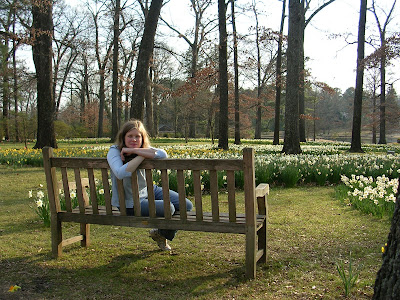
It’s the eleventh day of Christmas, and I have no pictures of lords a-leaping that I can put my fingers on.
It’s also hitting me that we really are in a New Year. I’ve mis-written the date a couple of times, but actually gotten it right often enough that 2008 feels real to me now.
And so, the photo….Anyone who has been to our house, or who has seen enough photos on my blog, will recognize it as our tablecloth.
Here, however, it is doubling as a runway. A taking-off place. A place where you build your momentum. Momentum is necessary, by the way, for leaping. Just ask any leaping lord you come across.
While I tend not to make bold resolutions for the new year, I do experience a hopeful energy with this new beginning. After the glory of Incarnation and angels appearing and human beings being unusually kind and generous for a season, all kinds of things really do seem possible. It is easier to believe in leaping, or flying, or simply getting my desktop cleared off.
And so I share the following article that I came across this evening, with a toast to new beginnings, to hope, and to possibilities.
Life is full of opportunities to start over
By DAVID YOUNT
Scripps Howard News Service
2008-01-02 00:00:00
The novelist F. Scott Fitzgerald famously lamented that "there are no second acts in American lives," having persuaded himself that any failure along the way consigns us to be losers for life.
Despite his early success and lifelong genius, Fitzgerald managed to fulfill his own prophesy. As his beautiful wife descended into madness, he became a bitter and violent alcoholic, dying prematurely of a heart attack at the age of 44.
The novelist's failure might be dismissed as the product of a morbid artistic temperament. But at this moment many professional economists echo his pessimism, teaching that humankind is condemned to inhabit a "zero sum" universe, in which life's winners succeed only at the expense of the losers.
Don't believe it. The weight of evidence from the beginning of recorded history demonstrates that the novelist and his disciples of gloom are dead wrong. Failure is not permanent, but predictable and passing.
The conjunction of Christmas and New Year's is no accident. At Christmas we take a fresh look at our old faith from its beginning, with a child in a manger. With the New Year we affirm the belief that our fates are not fixed, and resolve to renew our lives.
If the gloom mongers were correct, Jesus of Nazareth would qualify as history's greatest failure, broken in body and persecuted in spirit, ending his life as a criminal nailed to a cross. But two millennia later, more than 2 billion people across 260 nations feel blessed to call themselves his followers, persuaded that Calvary was only the final scene of Jesus' opening act. In the second act of his life he prevailed over death.
On a less lofty level, countless men and women throughout history have displayed a marvelous resilience in confronting their setbacks and handicaps, converting defeat into victory. Whatever else we may lack, hope is seldom in short supply, because most Americans are persuaded that we have second chances. The current fashion for "total makeovers" only underscores our confidence that it is never too late to pick ourselves up, brush ourselves off, and start all over again.
If we suspect ourselves to be handicapped in overcoming failure, it may be because we worship at the altar of what psychologist William James called "the bitch goddess of success," narrowly defining personal fulfillment in terms of financial wealth and physical beauty.
Although Christianity acknowledges distinctions in our gifts and accomplishments, it insists that we are all equal in the sight of God. If we can begin to regard ourselves as our creator does, and see what he sees, we can summon the strength to start over, again and yet again, reinventing ourselves.
Sally Jenkins, writing in The Washington Post, affirms that "every act is redeemable... and the days ahead are a blank gift in which a person can remake himself... in any fashion he pleases." But, as Jesus himself advised, for doors to be opened to us, we must first knock on them.
David Yount's new book is "How the Quakers Invented America" (Rowman & Littlefield). He answers readers at P.O. Box 2758, Woodbridge, VA 22195 and dyount(at)erols.com.
























